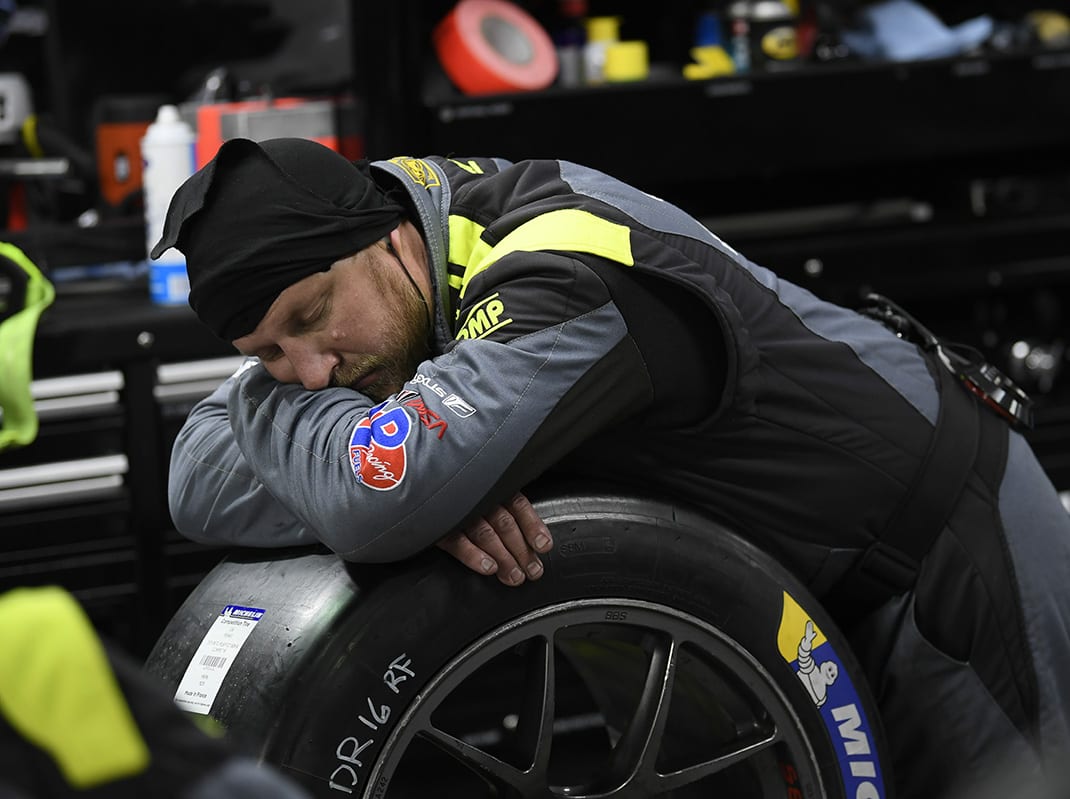It’s chalk and cheese now.
“It’s a completely different platform now,” Haywood noted. “The bigger teams have really concentrated endurance programs for the drivers, they have fitness camps several times a year. The people in the fitness camps set down a diet that they’re supposed to be on for the season and they are really strict about it. Back in my day you could eat whatever you wanted.
“I remember one time we went to a Willie Dongle fitness camp. Both Bob Wollek and myself left the fitness camp in the middle of the program because it was so against what we were used to,” he continued. “They had us eating these special foods that made you sick and I just said I am not going to a completely different regimen this close to a race, that my body isn’t used to and he (Wollek) felt the same way.”
For Haywood, the move from the driver’s seat to the top of the pit box was an epiphany.
“When you become a team owner or manage a team you have all these different things that you’re taking into account,” he explained. “My job was not in the engineering side. My job was taking care of the drivers. It was a head game. When I started that I had no idea how complicated that could be. I’m not a psychiatrist but you’ve got to get their heads right.
“If you’ve got one little thing that they’re focusing on that’s not a positive thing, that upsets the cart upside down,” he added. “You really have to be careful how you say something. If the driver is not up to speed, what do you tell him? You’re not fast enough, you have to get your stuff together or we’ll boot you out of the team.”
No doubt that’s a tough call.
It’s equally important to take care of the guys behind the wall. Many teams have chefs preparing hot meals in the garage area. There is little junk food anymore. The crew also has more comfortable places to rest when they’re off duty.

Literally anything can happen during a 24-hour race. Most teams have spare parts stored behind the pit wall. A nose or tail section can be replaced quickly but Haywood noted those pieces must be fitted at the shop long before the race.
Then there are the “never-saw-that-coming” moments. Action Express boss Gary Nelson recalled such a moment.
“This year, we were leading the race and our brake lights went out,” Nelson said. “So we got a black flag because the brake lights quit working and that was not something we had prepared for, so it caught us off guard. So even the smallest things can make a big difference.”
Team Penske is process driven. The team’s managing director, Ron Ruzewski, summed it all up.
“The first step was getting the right people in place, the next step is to always constantly learn and take that information forward,” Ruzewski explained. “So every test we ran, we projected what (car components) mileages out. We need to make sure a car will last 24 hours. We continue to build that database, but unfortunately we’ve had issues in the last two (24-hour races) which hindered our performance and we learned from that and you can bet that after every 24-hour race that car is completely documented.”
